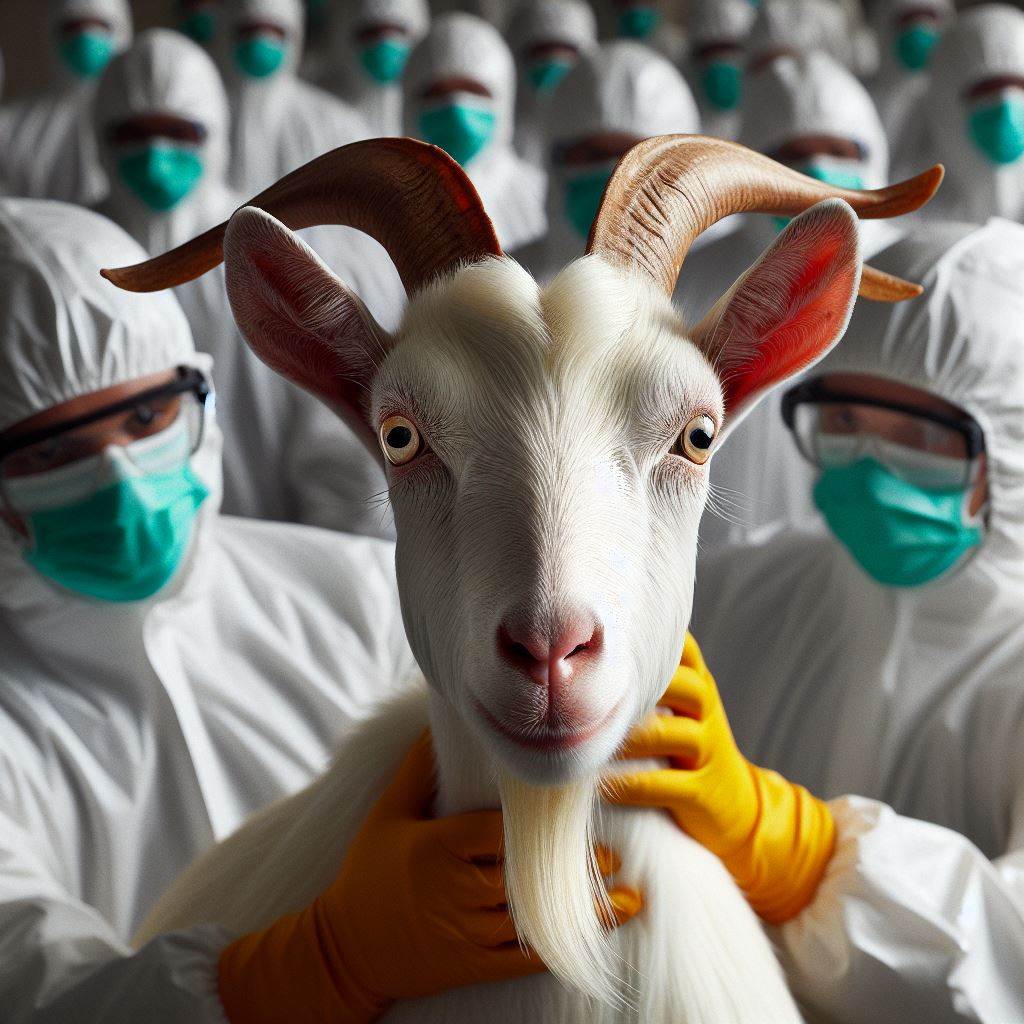A recent discovery has shaken the agricultural community in the US as a goat was found to be infected with the H5N1 subtype of bird flu on a farm in Minnesota. This marks the first instance of bird flu affecting a domestic ruminant in the country, according to the Minnesota Board of Animal Health.

The alarming revelation came after bird flu was initially detected in poultry on the same farm back in February. Despite the birds being promptly removed, unusual deaths among baby goats were observed by the farm owner in March. The goats and poultry shared space and a water source, potentially facilitating the transmission of the virus.
Fortunately, only one goat tested positive for the infection, with all others returning negative results. Officials reassured the public, stating that the risk of transmission to humans is extremely low and confined to those in direct contact with infected animals.
Dr. Brian Hoefs, Minnesota State Veterinarian, emphasized the significance of this finding, particularly regarding the potential transmission of the virus to other animals within multi-species farms. However, research indicates that mammals typically act as dead-end hosts, minimizing the likelihood of further spread of the Highly Pathogenic Avian Influenza (HPAI).
The prevalence of avian influenza outbreaks in mammals has been on the rise globally in recent years. Since 2021, Europe and the Americas have been grappling with a relentless outbreak of H5N1 avian influenza, impacting millions of birds and thousands of mammals. The virus has also made inroads into Africa and Asia, with recent cases even reported in Antarctica.
According to the World Organization for Animal Health (WOAH), the spread of avian influenza has affected numerous bird and mammal species worldwide since 2021, except for certain regions such as the Pacific Islands, Australia, and New Zealand. The widespread impact of the virus poses a grave threat to wildlife populations, potentially leading to an ecological crisis.
In a separate incident, Vietnamese media reported a fatal case of H5N1 avian influenza involving a university student in Ninh Hoa. Despite no reported cases of infected poultry near the student’s home, he succumbed to the virus after falling ill. The source of his infection remains unclear, raising concerns about the potential for human transmission.
- “First Case of Bird Flu in US Goats Raises Concerns Among Agricultural Community”
- “Global Spread of Avian Influenza Threatens Wildlife Populations, Warns WOAH”
- “Fatal Case of Bird Flu Strikes Vietnamese University Student: Health Authorities on Alert”
- “US Officials Monitor Farms Closely After Bird Flu Detected in Domestic Ruminants”
- “Unexplained Transmission: Mystery Surrounds Vietnamese Student’s Bird Flu Death”

